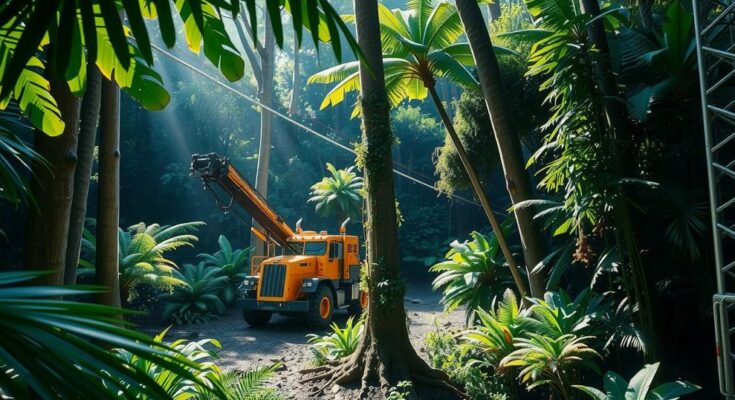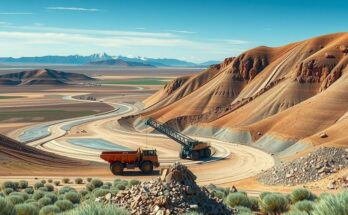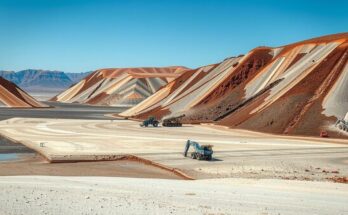A potassium mining project in Brazil’s Amazon rainforest is causing division among the Mura Indigenous tribe. While some view the project as an economic opportunity, others fear environmental risks and cultural erosion. The mining initiative has raised legal and ethical concerns regarding proper consultation and the recognition of Indigenous lands.
Brazil’s Amazon rainforest is home to one of the world’s largest potassium reserves, igniting both industrial ambitions and Indigenous rights issues. Indigenous leader Filipe Gabriel Mura expresses his concerns about the potential environmental impact of the planned mining project by Brazil Potash Corp. that aims to extract potash, a crucial ingredient for fertilizers, essential for Brazil’s agribusiness sector.
This mining initiative, estimated to cost $2.5 billion, will involve the construction of extensive infrastructure, including shafts extending 920 meters underground and a processing plant. The anticipated production is approximately 9.2 million tons of potash ore annually, which could meet 17% of Brazil’s current demand. However, the project has provoked significant opposition due to fears of pollution and cultural disintegration among the Mura people.
Key villages, such as Soares and Urucurituba, are not formally recognized as Indigenous lands despite historical claims and formal requests for recognition dating back to 2003. The Brazilian Indigenous bureau, FUNAI, acknowledges that these areas are likely Indigenous lands, but the mining project continues amidst an ongoing legal dispute regarding inadequate consultation with the Mura tribe.
Some members of the Mura tribe see the mining project as an opportunity for economic advancement, citing potential improvements in education and health care. However, conflicting opinions within the community have emerged, leading to accusations of deception and coercion concerning land acquisition for the project. The heightened internal divisions are severely affecting community unity and cooperation.
Concerns over environmental safety also persist, particularly regarding the management of brine, a byproduct of mining, which poses contamination risks. Experts warn that the mining operations, although economically vital, may pose significant risks, including potential subsidence of the land. The Brazilian government supports the mining initiative, viewing it as crucial for reducing reliance on potash imports from politically unstable regions.
Internal disagreement among the Mura has intensified, leading to separate gatherings for supporters and opponents of the project, and a splinter group has formed to resist mining. Such divisions have disrupted unity and solidarity within the tribe, fundamentally jeopardizing their collective Indigenous identity and struggle.
The potassium mining project in Brazil’s Amazon rainforest presents a significant conflict between industrial growth and Indigenous rights. As the project progresses, it highlights critical concerns regarding environmental sustainability and the cultural preservation of the Mura tribe. The divisions within the community are a direct consequence of this project, raising questions about the future of Indigenous representation and unity amid economic pressures. Thus, careful consideration of both Indigenous rights and environmental impacts will be crucial going forward.
Original Source: apnews.com




